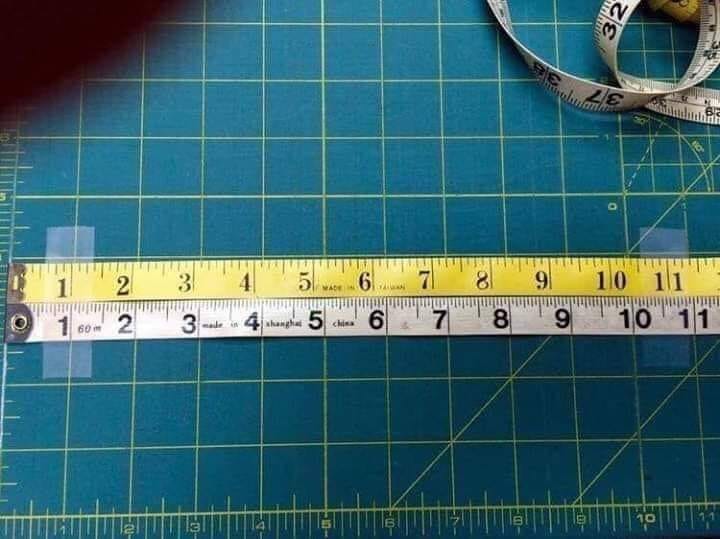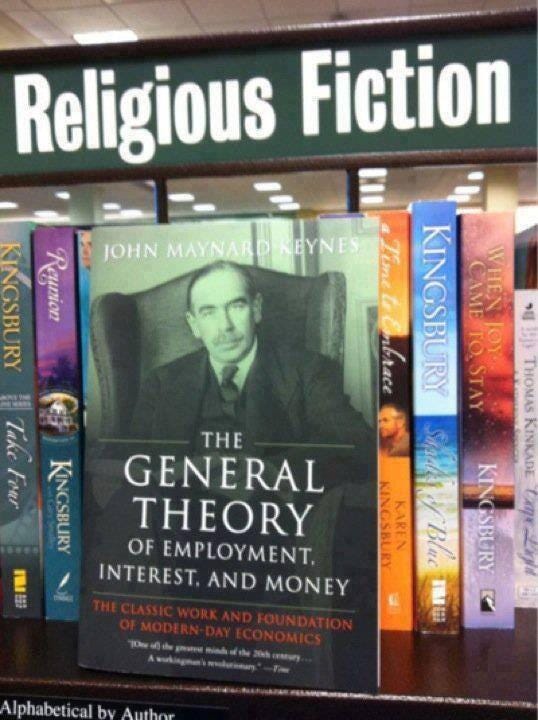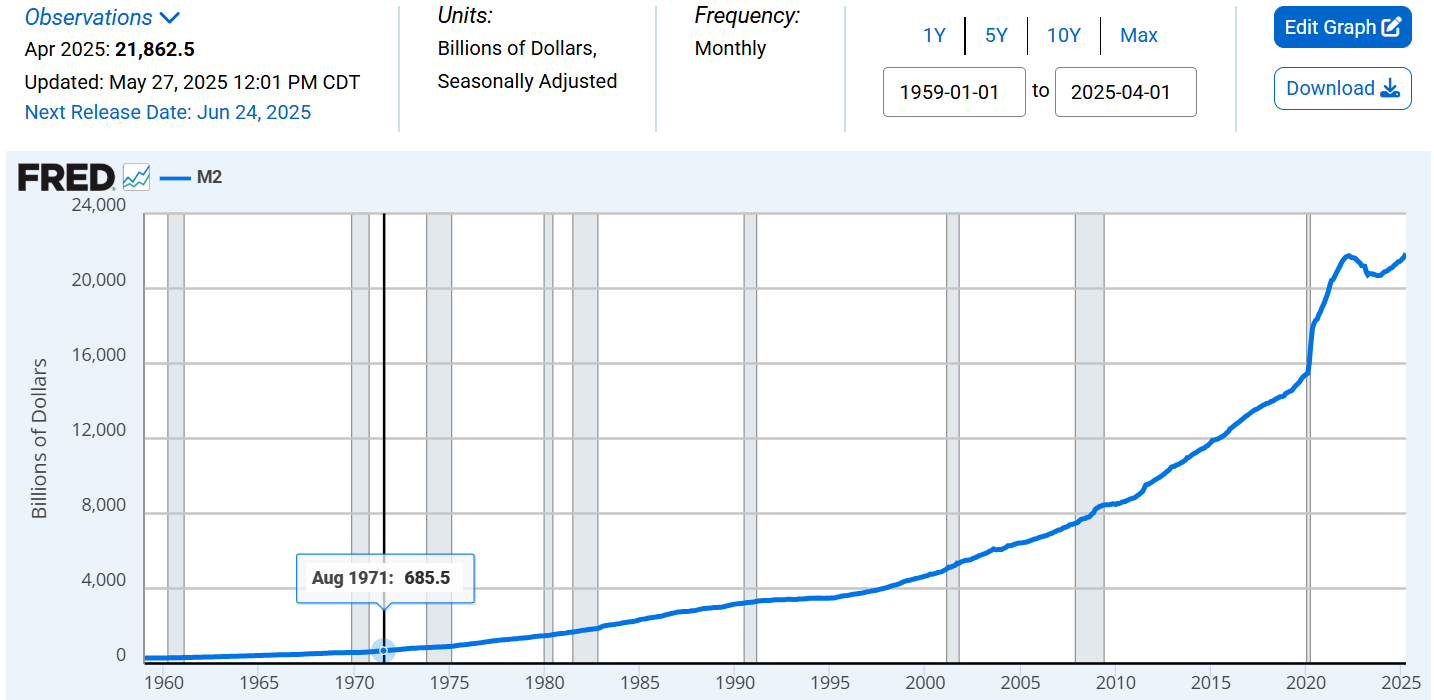“Mainstream economics is replete with ideas that ‘everyone knows’ to be true, but that are actually arrant nonsense.”
Jeremy Rudd, Economist, Board of Governors of the Federal Reserve System, 2021
"Accepting the absurdity of everything around us is one step, a necessary experience: it should not become a dead end. It arouses a revolt that can become fruitful."
Perhaps before continuing further it might be good to read out Dredge’s “Rational Accounting Man” piece from February.
“Rational Accounting Man is how the world gets to circumstances such as $18.44 trillion of negatively yielding bonds1. The answer to the oft asked question, “who would own negatively yielding bonds?”, is quite clearly Rational Accounting Man.”
“While in the physical sciences the investigator will be able to measure what, on the basis of a prima facie theory, he thinks important, in the social sciences often that is treated as important which happens to be accessible to measurement.”
Friedrich von Hayek, 1974
Uncertainty, Volatility & Risk with David Dredge of Convex Strategies
Apparently David Dredge and the host chatted for 2 hours, but the host edited it down to one, and I don’t like when podcast hosts do that. I mean, worst case, make it a 2-parter. Heck, in my last Substack post I posted a link to a 5 1/2 hour podcast that I listened to over a few long walks. Why? Because it was good. Too long for some? That’s fine, skip it.
I’ve quoted David Dredge before, because I think he’s one of the most honest, insightful, and pithy market players, and clearly he and I see things very similarly. As always when I praise someone, I hope it doesn’t hurt their career.
Not that it ever bothers me to have a minority opinion, but I suppose I feel a bit validated whenever I come across someone with a curriculum vitae in finance far exceeding my own who sees things as I do (and I have come across more than a few of these people via Twitter, thank God). In an ocean of Bernankes, Lagardes and Yellens, there are some intellectual lifeboats.
You won’t be disappointed with some of Dredge’s gems below.
Probably the most lengthy presentation of him I’ve done before was in Uncapitalized Risk, back in October 2024.
Note that this interview was posted on May 1, 2025.
All quotes below are Dredge’s unless otherwise noted.
“The structural flaw of the investment industry: this dangerous assumption around stable correlations…"
“Volatility is not risk.
“One of my trigger pet peeves - the Sharpe Ratio2 - anything that assumes volatility in itself is risk and treats upside volatility the same as downside volatility is explicitly wrong - Nassim’s term Wittgenstein’s Ruler. If you're using a ruler that you know is wrong to measure a table, the table is telling you more about the ruler than the ruler is telling about the table, or more accurately telling you more about the guy using the ruler. Sharpe Ratio is the Wittgenstein’s ruler of investment management.”
“If somebody's using that [Sharpe Ratio] as a measure of comparison of risk or portfolio performance, you know that he either doesn't know what he's doing or he's intentionally misrepresenting what he's doing. One of my many Dredgisms or catchphrases is that risk isn't what you think's going to happen. Risk is what hurts if it happens.”
Rational Accounting Man:
“Rational accounting man3 has been programmed, constructed, embedded in financial regulated institutions to behave exactly that way - to say, your incentive is to follow these rules, and do what we want you to do, which, most simply put, is absorb prolific issuance of government debt at prices that no rational long-term investor would own with their own capital.”
“Magnitude is what matters. Magnitude of downside, magnitude of upside - not frequency of downside or upside.”
What is Convexity?
My take: Many Wall Street money managers don’t really know what they’re doing (e.g., 60/40, Modern Portfolio Theory etc.)
“The simplest thing for a retail guy or a guy who's trying to manage his own thing that doesn't have access or capability, again, is how much of your portfolio can you reconstruct through owning call options? If you own call options when the price was right and the opportunity was right, well, then last week wasn't that big a deal for you [keep in mind this interview was released May 1].
Maybe you gave up some of your previous gains, but you knew explicitly what your potential downside was. You're not the guy who's getting forced out of positions after a negative draw down because he doesn't know what his potential downside is, and he was probably relying on bonds as his principal risk mitigant. It turns out they had days where the downside was even worse than the equities.”
He says much more about portfolio construction in the full interview if you’re interested.
“It's almost like Satan whispering in your ear if somebody comes along and says, "Why don't you actually take on convexity?" Now, obviously, the entire sophisticated financial system who's out advocating to all of their clients and the whole world to forego convexity is on the receiving end of that convexity they're foregoing. Somehow, someway, JP Morgan and Citadel are all making money even though they're telling all their clients the best way to make money is to sell volatility.”
On Janet Yellen:
Yellen believes that the real world should behave the way her model says it should
Host: “You mentioned your early associations with the former Secretary of the Treasury. How would you mark her out of 10 for the job she did?”
“You put me in a tough spot here, but I'll do my best. Professor Yellen is a lovely lady. She reminds me very much of my mother. They're both short, and have gray hair, and a little bit round. Both extremely well read. My mother's an attorney, and reads history books, and knows everything - but knows absolutely nothing about money and they both share that as well, which is okay, because my mother's an attorney. Not so good because Professor Yellen teaches economics and chaired the Fed and then ran the Treasury.
Professor Yellen lives maybe as much as anybody I've ever met inside Sharpe World. She believes the models of neo-Keynesianism, dynamic stochastic general equilibrium models (DSGE), the Federal Reserve’s what they call FRB/US model is true, and she believes that the real world should behave the way her model says it should behave, and that, as they will always say, everything else held constant. If I change this one thing, then this should happen.
Wait a minute - it doesn't work that way. There are a number of complications that you ignore. Let's see: nonlinearity, credit, rest of the world, time - all of these things seem to matter in the real world, and are neglected in your model, and this belief that they have - and you know, I'll give her the benefit of the doubt that she actually believes. She's not by nature evil I don't think. I hope not.
She actually believes that she can turn one knob and affect the things that the assumptions built into her model say will be affected, despite the fact that there is zero empirical evidence that that has ever been the case, and there's no mathematical rigor theory behind it, and yet they carry on doing it - heedless to, as we were talking about, the unintended consequences4, the second order effects, the fact that they're the ones building the boom-bust cycles that they claim to be fixing.”
Janet Yellen, Religious Zealot (my words - rh)
“I stuck the little cartoon in my note again this month that I've used before [I added the name - rh]…
Two things that Professor Yellen would always say if you challenge the assumptions of her model - she would say, "What's your model?"
Yes, because if you're going to argue her religion, it's got to be a comparative religion argument. It can't be against religion in general.
Number two: when she said "Well, to fix that problem you do this." And if you said "Well, clearly you're not creating wealth - you're just time transferring it, or reallocating it from here to there - so you must be creating some other problem, and she would say well, when that happens, we'll fix that problem. So literally - okay, we'll fix the problem we created when we fix the problem we created!”
The Recession is the Good Outcome
Bessent’s “in a really tough spot, because everything is so fragile, and so sensitive - in particular the bond markets - and not just his bond market, everybody's bond market. My hunger games analogy, there's this hunger game. Only one will survive the fight to issue your bonds, which is sort of inevitable when you get the entire world that matters beyond 100% of debt to GDP, and inflation takes off, and then interest rates go up, and then the whole fiscal dominance, financial dominance - can they raise rates enough without bankrupting the government or blowing up the financial system? You're sort of in this trap…
I've said for a very long time - another catchphrase- is that it's very likely that the recession is the good outcome. If you get the recession, people buy the bonds. You can't create a scenario where people voluntarily buy the bonds…that's a bigger problem.”
“It is possible to leave university now knowing nothing of financial history, even if one has a degree in finance - even if one has a post-graduate degree"
Russell Napier, 2020 (source interview now scrubbed from Youtube)
They create the very fat tails that makes the whole system so fragile.
“The whole premise of Sharpe World - the whole premise of Janet Yellen and the policy makers in their beliefs - is let's suppress volatility, and everyone will do what we want them to do, and we'll pay fiduciaries to do this with other people's money, and incentivize them with short calendar period annual compensation, taking on multi-year, multi-decade risks. They create the very fat tails that makes the whole system so fragile.
If you think through history - we talk about it in our business all the time. What we're out looking to construct is convex payouts around those fat tails…the price for buying insurance will be at its cheapest at exactly the time that the risk is the greatest, because it's measuring risk as frequency. When was the last time we had a forest fire? Oh, it's been a long time, so the risk is really, really low - but we happen to know that's when the risk is really, really, high.
Sharpe World doesn't seem to be replete with people who understand economic history. There seem to be a complete absence of any acknowledgement of what has gone before.”
On Christine Lagarde and all Central Bankers:
“Listen to any discussion by central bankers - Christine Lagarde is one of the best at this. She's got absolutely perfect control of the knobs and levers to guide the economy into the future.
All current problems and past problems had nothing to do with her past policies and levers - they were all the result of unforeseeable events. The fact that the forest floor was absolutely clogged with dry brush and trees had nothing to do with the fire - it was the lightning strike - but now we are going to completely guide the forest in the future perfectly through our decisions.
So the inflation, the price instability of 2021-2023, was because of the pandemic. It was a supply shock. It was Ukraine. It had nothing to do with the greatest, longest period ever of zero interest rates, negative interest rates, quantitative easing, asset buying policies.
When they were telling us they were putting them in, they were pulling levers and turning knobs, because they were going to use these policies to, what? Reignite inflation! But when they got inflation, it had nothing to do with those policies. Nothing whatsoever, right?
So they are the greatest deniers of history you will ever meet, because to them history is a random series of exogenous events, and the future they have perfect control over. Either they don't know what they're doing - one of my dearest friends is the economist Bill White, and Bill is an honest economist who will say, you know, I used to believe this when I was at the Bank of Canada, and I used to believe that when I was at the Bank of England, but I figured out we don't know what we're talking about. We can't control any of this stuff. We can't target inflation, we can't target growth, we can't target employment - we have no control over anything. Our models are wrong.
(Dredge’s friend, ex-Central Banker Bill White, is a rarity. I quoted from him extensively recently here.)
“You didn't really have to compete for capital when every central bank in the world was doing QE max, and interest rates were at zero, and there was virtually unlimited leverage allowed in the banking system, and hidden leverage galore inside pensions and insurance companies”
“a lot of people after last week [this is from May 1 - rh] seem more confident that QE coming back soon to a theater near you”
On Japan:
“For 30 plus years, the government grew their debt, and increased their spending, as the private sector households and corporates de-levered, and they dragged that out, and dragged that out, and dragged that out until here we are today. Finally they've got inflation again. More inflation than anywhere else. They've got the most negative real rates, and the highest nominal inflation rate of any G7 country, and they're still going”
“I'm not sure the Eurozone can fix their imbalances”
So who's going to own the bonds?
“The whole premise around 60/40 modern portfolio theory said that, by definition, the bond is risk-reducing to the portfolio. It has a negative correlation - a negative correlation that has only existed since the '90s when Alan Greenspan innovated the central bank reaction function of cutting interest rates when equity prices fell. Prior to that, that correlation was never negative, so it's not a natural correlation. It's created by Sharpe world rational man, to follow these rules and load other people's money into these things that have no hope of generating retirement savings, and a future cost of living quality of life target, but everyone's loaded into them under the rules of correlation benefit, and low volatility…
The entire logic behind the rational accounting man benefit of putting other people's money into bonds as a risk-mitigant is gone, so who's going to own the bonds, if the bonds have no correlation benefit, aren't low volatility, and don't have sufficient yield to justify long-term investment returns for retirees?
There's not stable inflation5. All these bonds are trapped in these Sharpe world entities where rational accounting man's been paying himself bonuses on the accrued interest until somebody figures out that Silicon Valley bank's unrealized losses are bigger than their entire capital on their Treasury holdings…
They need somebody to own all these bonds, because the price or the yield required for somebody who's investing their own capital in these bonds is much higher than the yield that the governments can afford to pay..
The idiosyncrasies of how people deal with this is going to have major implications on their currency parity, because if one guy says, "I'm going to deal with it by letting interest rates rise to a point I attract capital from willing buyers," versus the other guy who says, "I'm going to do QE and put a cap on it and go back to massive financial repression" - well, those two guys whose interest rates went down and up together, and their currency has been historically stable, are not going to be”

“I would start breaking up the big banks, and I would force a lot more capital into the banks, and I would start a drive to reimpose Glass-Steagall”
David Dredge on what he'd do as Fed Chair
You took all the skin out of the game.
“Once Glass-Steagall went away, and we went inside BIS, my performative objective is annual accounting revenue, and follow these regulatory risk rules, so the risk became the regulator's responsibility - our job is to maximize rational accounting man compensation-linked revenue. You took all the skin out of the game.
So you went from being a partnership, where your job was to intermediate and get rid of risk, to being an accounting warehouse, where your job was to warehouse risk that you could account for favorably for short-term compensation purposes. We became rational accounting men, and that's a very dangerous thing, and that's why the guys like me and Nassim [Taleb] were arguing strongly against embedding value at risk in BIS regulatory guidelines and Basel One. Say you put value at risk in there - you're going to end up with the GFC. We were telling that 20 years earlier…
Scott Bessent talks about this. He is of the opinion - and I don't disagree with him - that the Fed should be independent for its monetary policy, but it needs to get out of the regulation business, because it blurs some lines. Is QE to bail out the banks, or is it a monetary policy tool? Well, it's pretty unclear when they use it in the event of the fire, and then keep using it years and years and years after the fire, and so I agree with Bessent on that.
The Fed needs to shed its regulatory responsibilities. It's been a very bad regulator in my opinion, and it has been dominated by what Bill White calls financial dominance, and increasingly dominated - since it facilitated the growth in governments - to fiscal dominance, and so the first thing I would do if I took over a central bank is I would say it's not our job to regulate financial institutions, we shouldn't be making decisions based on that. We should be making prudent decisions about credit and money growth in the system.”
“What inflation used to be was credit and money growth. Now inflation is the annual change of a price index. We've changed the whole definition and meaning of the word inflation. It drives me nuts.”
“However beautiful the strategy, you should occasionally look at the results.”
Unknown (no evidence Churchill ever said or wrote it)
"If the invention of interest was the greatest invention in finance back five millennia ago, then negative rates are probably the dumbest idea in the entire history of finance and we’ve just been living through it." - Edward Chancellor, 2022
“The Sharpe ratio…measures the performance of an investment…compared to a risk-free asset, after adjusting for its risk. It is defined as the difference between the returns of the investment and the risk-free return, divided by the standard deviation of the investment returns. It represents the additional amount of return that an investor receives per unit of increase in risk. It was named after William F. Sharpe, who developed it in 1966.”
“Readers will, no doubt, be familiar with the core of traditional (Sharpe World) economic models’ concept of “Rational Economic Man”, aka “Homo Economicus”. Rational Economic Man (REM) represents the sole universal agent operating in an economy/market. Rational Economic Man has complete and perfect access to all the information needed, and all the knowledge and tools necessary, to make (expected) utility maximizing decisions across all commercial and economic choices encountered. It is one of many key simplifications to make behavior predictable (and manipulatable) in economic analysis and policy making.
Rational Economic Man (REM) is the perfect foil to the simplified parameters of finance and economic models, our Sharpe World or Taleb’s “Mediocristan”. We’ve laid this out many times over. Gaussian/Normal distributions. Linearity. Ergodicity.”
“There is only one difference between a bad economist and a good one: the bad economist confines himself to the visible effect; the good economist takes into account both the effect that can be seen and those effects that must before seen.
Yet this difference is tremendous; for it almost always happens that when the immediate consequence is favorable, the later consequences are disastrous, and vice versa. Whence it follows that the bad economist pursues a small present good that will be followed by a great evil to come, while the good economist pursues a great good to come, at the risk of a small present evil.”
- Bastiat























Excellent. Thank you.
I love Randall Munroe.